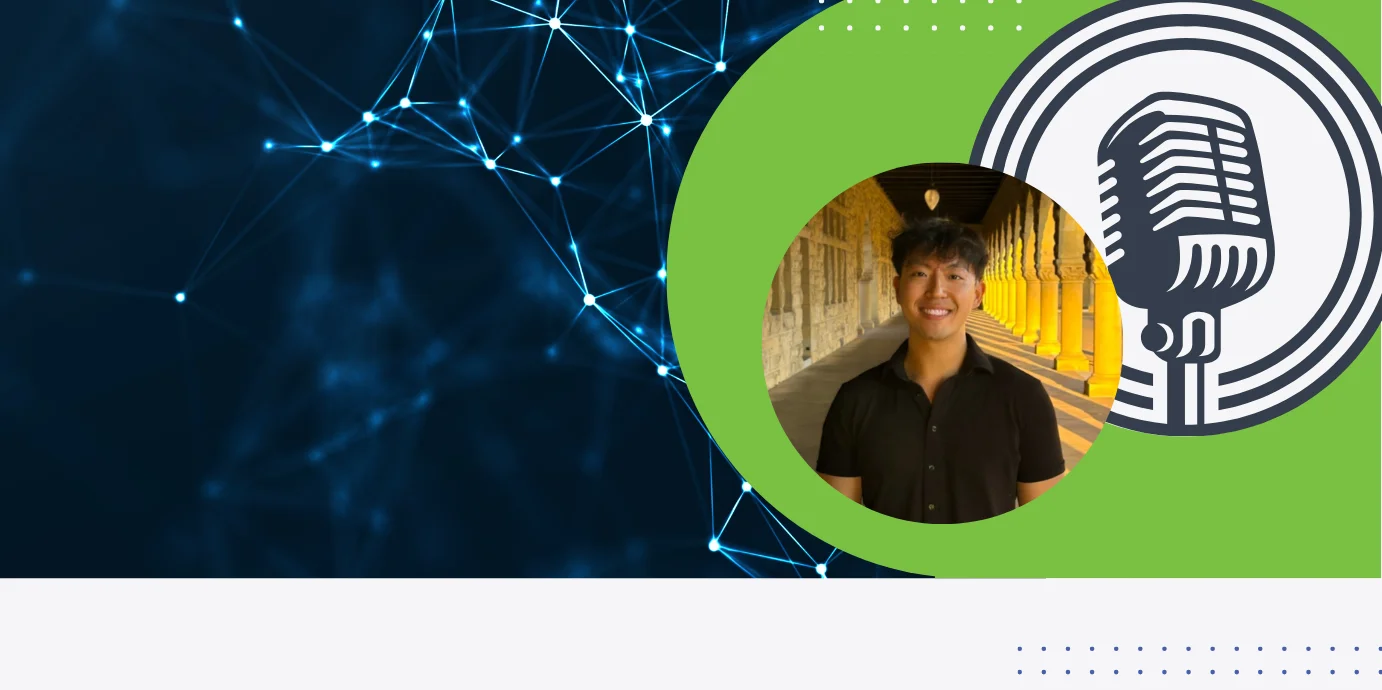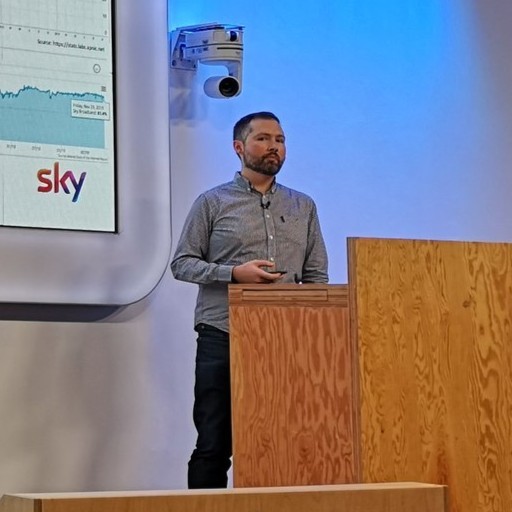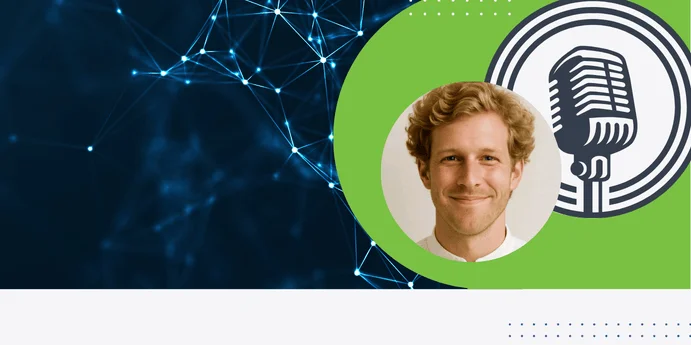
Richard Patterson at Sky- Episode 20 - The Route to Networking
30 June, 2023On the 20th episode of The Route to Networking, James Dean, the Director at Hamilton Barnes, sits down with Richard Patterson, the Technical Manager at Sky. During this podcast, the pair delve into Richard’s career in the Networking industry and share with us the journey he’s been on since starting back in 2002.
Richard takes us back to where it all began, the perfect start to every Network Engineers story and for him it was University. Richard and his friend wanted to get themselves faster broadband, at that point, it wasn’t broadband, it was Original ADSL and even then, it was limited to 128KB per second. From there, they decided to set up their own wireless ISP. As University students they set everything using Linux.
Before this, Richard was always a bit of a geek growing up. Alongside a friend, they would rent out the local school hall and would bring their PCs, and CT Monitors and build their own LAN parties in these halls.
After leaving University and graduating with a Computer Science degree, he took the skills he had learned from building an ISP with Linux and put them into managing Linux systems for people. He took his CCNA certification and gravitated back down the Networking path as he realised that’s where his true passion lay.
After landing his job at Sky back in 2013, he went from an IP Engineer to a Technical Manager role. The development in those positions sounds like a huge jump but coming from his experience, the role he does now is still very technical, but he is now just more responsible for owning the functional areas and focusing on individual projects.
With Sky being such a large company worldwide, Richard tells us about the big project they are working on over there. They have just launched a new broadband network for Sky Italia. Now that it’s been launched, they have still got a lot going on over there. Internally they have huge projects in the works but unfortunately, that is very confidential at the moment.
With University being such a huge topic in this industry whether it’s beneficial to the career of a Network Engineer or not, James asks Richard if his Computer Science degree helped his own career and if it played a part in where he is today. Richard feels that you really must know your way around Linux systems, as a lot of routers and switches these days run what’s already under the hood but from a diagnostics perspective, knowing how to drive these general skills helped him in his career. For him, it’s incredibly important to have the fundamentals. It’s pointless to do certifications if you don’t know the fundamentals and that’s what he learned at university. So, overall, University was a positive experience and has been useful for him in his career.
Starting out making his own wireless ISPs at home to now being the Technical Manager at Sky, a lot has changed in that time frame regarding the industry and the skills required in being able to get a job these days. Richard says, “Skills don’t become obsolete, the technologies and the knowledge you’ve learned perhaps become obsolete so you can take the skills you’ve learned and apply them to the technologies”. In the industry in general, there’s been a big shift away from the “just make it work” attitude and instead has become heavily focused on reliability and resiliency. The Internet is no longer an optional service, it’s critical to everyday life for everybody now.
Kickstarting NetLdn…
NetLdn all started because of NetMcr (Net Manchester). He had friends who were the organisers of that, and his London-based colleagues said that they should do it. They all had the same requirements to have the social meetups, so they spoke about it for a long time when NetMcr first started and then finally bit the bullet and did it.
In a nutshell, NetLdn is based around Networking professionals spending time each month to socialise. The hardest part for Richard is finding the presentations for them. They have a CFP form on their website that people can submit a proposal to but otherwise, they have been shoulder tapping their friends to come along and present anything that interests them, whether it was something they found ‘cool’ or techy, it doesn’t have to be in-depth.
A massive change in development he sees coming over the next few years is Automation. There is a huge drive for automation both from an industry perspective and what we need to scale to large networks but also from a telecom security requirements perspective. In the next few years, you will no longer see people jumping on routers directly to make changes.
Richard gives us an insight into the changes he sees coming for the modern Network Engineer in the next few years… Want to hear what he thinks? Make sure you tune in!




